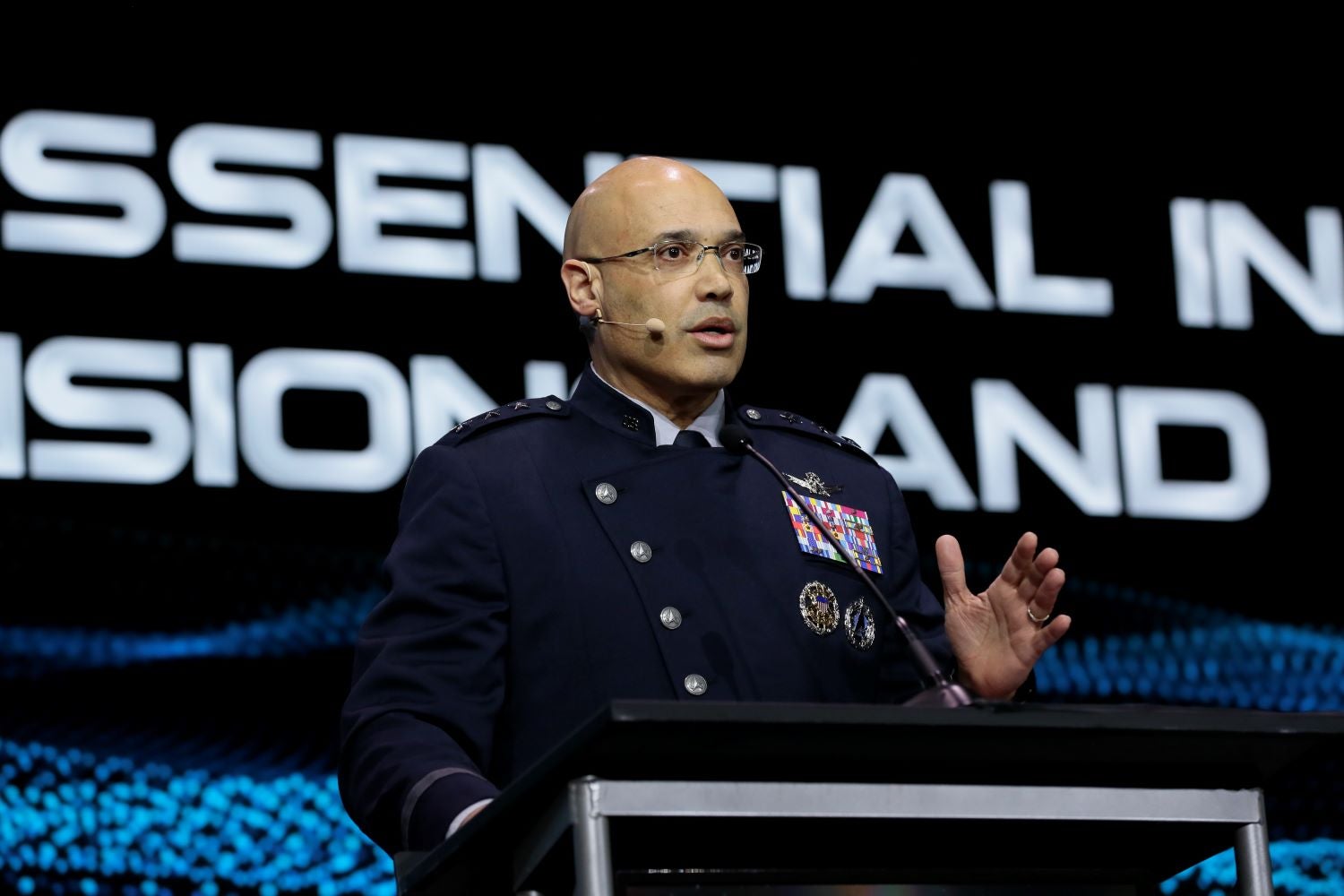Latest News
Intelligence, Operating Entities Need to Shed ‘NOFORN’ Mindset, Space Operations Chief Says

Lt. Gen. David Miller, commander, U.S. Space Operations Command, addresses the 2024 GEOINT Conference in Kissimmee, Fla. Photo: USGIF
KISSIMMEE, Fla. — U.S. history shows the country does not go to war alone and, amid war in Central Europe and coercive activities by China against its neighbors, America will not go to war in the future without allies, which mean the U.S. intelligence community and operators need to share information with allies and partners, the commander of U.S. Space Operations Command said on Monday.
“We have built systems in our intelligence enterprise, but sometimes in our operational enterprise candidly, that we stamp NOFORN on everything,” Space Force Lt. Gen. David Miller said at the GEOINT 2024 Symposium. “That is a recipe for losing. The United States does not go into conflict alone.”
Miller said the battlespace must be seamless between the U.S. and its allies, and that coalition warfighters must be able to interoperate.
“We need to have our coalition partners a part of the formation and their shooters ready to receive this information,” he said. “And it goes directly to them at the same time it goes to the United States Air Force or whoever the shooter is on our side.”
Limiting or preventing information sharing with coalition partners has negative impacts at the tactical level, Miller said. “U.S. only” is not the way, he said.
“It’s just not the way joint and combined operations work,” he said.
Miller said that current U.S. intelligence efforts are not meeting the needs of theater commanders and their warfighters in operationally relevant timelines. Miller did not name the National Geospatial-Intelligence Agency, which is a combatant support agency that provides imagery and related analytics—including targeting information—to combatant and other field commanders.
The Space Force is pushing to have its own capabilities and authorities to acquire moving target indicators — for both ground and air-based assets — from space.
As the Space Force builds up its capabilities in targeting moving threats, it wants to get that information directly to shooters and tactical units, including coalition partners, Miller said later Monday during a media roundtable.
The Space Force’s Warfighting Analysis Center is developing the architecture, and is “in the middle of resourcing” the network, that will process and disseminate data directly to warfighters, he told reporters.
“Many of our previous missions that we’ve executed in our enterprise, the Department of Defense and with the intelligence community, we’ve tended toward systems where we started U.S. only and as a result had a difficulty integrating our allies and partners” Miller said. “And what we’re trying to do in the Space Force is insist on that’s not the way to start. The U.S. doesn’t fight by itself.”
Work is ongoing to better integrated allies and partners, he said.
The combined space operations team includes the U.S., Australia, Canada, New Zealand, and the United Kingdom, and discussions are underway with France, Germany, and Japan to receive data and examine if their personnel should be integrated “into our formations,” Miller said. This cooperation is not at the level it was during the height of U.S. operations in Afghanistan and Iraq but that is the “shared vision that we all want,” he said.
Get the latest Via Satellite news!
Subscribe Now